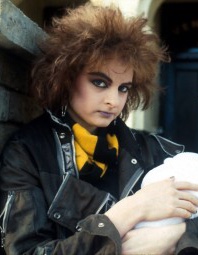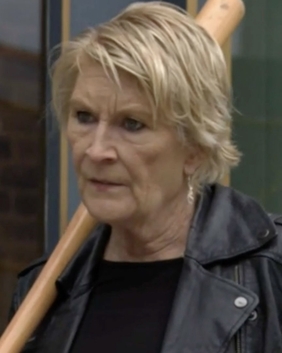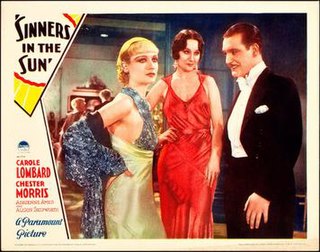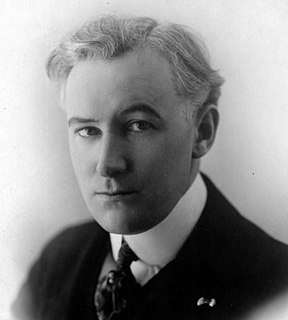Plot
New York City streetwalker Mae (Carole Lombard) is told by police to leave New York. However, she gets off the train at a suburban station, taking the cab of Jimmy Doyle (Pat O'Brien). He says he knows women well and does not think much of them. She slips away without paying the fare, as she is penniless. Fellow prostitute Lil (Mayo Methot) advises her to find honest work.
Receiving a loan, Mae goes to pay Jimmy the fare. They argue, but are mutually attracted and he finds her a job. By coincidence, Gert (Shirley Grey), another ex prostitute, also works there. Jimmy and Mae marry, but Mae has not told him about her past. When a policeman appears to arrest Mae for breaking bail conditions, Jimmy leaves to think things over. He then says he will try to make the marriage work, on condition that Mae has given up prostitution and avoids her old friends.
Jimmy has saved money to become a partner in a gas station. When Gert asks for money for a doctor, Mae takes it from Jimmy's savings. She learns Gert has lied and, when Jimmy tells her he will need the money, Mae finds Gert who promises to get her it. However, Gert has given the money to her boyfriend Toots (Jack La Rue), who is also Lil's pimp. When Gert tries to steal it back from him, Toots catches her and accidentally kills her. He hides the body, then watches from hiding as Mae shows up; she finds the money and leaves.
The police arrest Mae because she left her bag in Gert's apartment. However, a mistrustful Jimmy had been following Mae and knows a man was with Gert. He learns that it was Toots, but Lil gives Toots an alibi. Lil convinces Toots to go to the DA’s office and lodge a complaint against Jimmy, but when they’re there she rats Toots out for the murder of Gert. Toots is taken into custody and Mae is exonerated.

Carole Lombard was an American actress, particularly noted for her energetic, often off-beat roles in screwball comedies. In 1999, the American Film Institute ranked Lombard 23rd on its list of the greatest female stars of Classic Hollywood Cinema.
The following is an overview of 1934 in film, including significant events, a list of films released and notable births and deaths.

Mae Murray was an American actress, dancer, film producer, and screenwriter. Murray rose to fame during the silent film era and was known as "The Girl with the Bee-Stung Lips" and "The Gardenia of the Screen".

Marked Woman is a 1937 American dramatic crime film directed by Lloyd Bacon and starring Bette Davis and Humphrey Bogart, with featured performances by Lola Lane, Isabel Jewell, Rosalind Marquis, Mayo Methot, Jane Bryan, Eduardo Ciannelli and Allen Jenkins. Set in the underworld of Manhattan, Marked Woman tells the story of a woman who dares to stand up to one of the city's most powerful gangsters.

Mayo Jane Methot was an American film and stage actress. She appeared in over 30 films, as well as in various Broadway productions, though she attracted significant media attention for her tempestuous marriage to actor Humphrey Bogart.

Sex is a 1926 play written by and starring Mae West, who used the pen name "Jane Mast". Staged on Broadway, the play received bad reviews, but was a commercial success. It was eventually shut by the NYPD due to obscenity and West spent time in jail because of it.
Any Day Now is an American drama series that aired on the Lifetime network from 1998 to 2002. Set in Birmingham, Alabama, Any Day Now explored issues around race and friendship and how they effect the lives of two devoted lifelong friends over the years—from the 1960s to the current day. The show stars Annie Potts and Lorraine Toussaint, portraying best friends from childhood, as they address topics that come up in their interracial community openly and directly.

Mary Smith, also known as Mary the Punk, is a fictional character from the BBC soap opera EastEnders, played by Linda Davidson, from 5 March 1985 to 26 May 1988. Punk Mary is Walford's original wild child. She often makes life difficult for herself due to her stubborn, defensive nature and she tends to feel that everyone around her is out to get her. In fact, Mary is her own worst enemy and most of her misfortune is down to her irresponsible behaviour and her inability to heed good advice. Davidson's return to the soap for a single episode was announced in December 2018. She returns for the funeral of Doctor Legg in episode 5871, originally broadcast on 19 February 2019.

Shirley Carter is a fictional character from the BBC soap opera EastEnders, played by Linda Henry. She first appeared on 7 December 2006, during episodes set in Dorset. This is Henry's second role in EastEnders, as she previously played prostitute Lorraine Salter (1991–1992). Henry took a break from the show in September 2012, returning on 3 December 2012. Shirley is one of several EastEnders characters to appear in the internet spin-off series EastEnders: E20. Some of her storylines have included trying and failing to rebuild relationships with her children Carly and Deano, a friendship with Heather Trott, a volatile relationship with Phil Mitchell, the introduction of her son Mick, who at first was believed to be her brother, and his family, an affair with Phil, despite him being in a relationship with Sharon Rickman and accidentally shooting Phil. Former EastEnders executive producer Dominic Treadwell-Collins has described her as a "new icon" of the show.

Shirley Grey was an American actress. She appeared in more than 40 films between 1930 and 1935.

Now and Forever is a 1934 American drama film directed by Henry Hathaway. The screenplay by Vincent Lawrence and Sylvia Thalberg was based on the story "Honor Bright" by Jack Kirkland and Melville Baker. The film stars Gary Cooper, Carole Lombard, and Shirley Temple in a story about a small-time swindler going straight for his child's sake. Temple sang "The World Owes Me a Living". The film was critically well received. Temple adored Cooper, who nicknamed her 'Wigglebritches'. This is the only film in which Lombard and Temple appeared together.

Flying High is a 1931 American pre-Code musical film released by Metro-Goldwyn-Mayer, produced by George White, with lyrics by B. G. DeSylva and Lew Brown, music by Ray Henderson and additional songs by Dorothy Fields (lyrics) and Jimmy McHugh (music). The cast featured Bert Lahr, Charlotte Greenwood, Pat O'Brien, Charles Winninger and Hedda Hopper, with Gus Arnheim and his orchestra.

The Fighting Temptations is a 2003 American musical comedy film directed by Jonathan Lynn, written by Elizabeth Hunter and Saladin K. Patterson, and distributed by Paramount Pictures and MTV Films. The main plot revolves around Darrin Hill who travels to his hometown of Monte Carlo, Georgia as he attempts to revive a church choir in order to enter a gospel competition with the help of a beautiful lounge singer and childhood friend, Lilly, with whom he falls in love. Through the choir's music, Darrin brings the church community back together all the while seeking a relationship with Lilly.

The Admiral Was a Lady is a 1950 American comedy film directed by Albert S. Rogell and starring Edmond O'Brien and Wanda Hendrix. The working title of the film was Once Over Lightly, taken from one of the film's songs.

Little Big Shot is a 1935 American film directed by Michael Curtiz, starring Sybil Jason and Glenda Farrell. The film was released by Warner Bros. on September 7, 1935. A young girl endears herself to her caretakers after her father is murdered by mobsters.

Flowing Gold is a 1940 American adventure film starring John Garfield, Frances Farmer, and Pat O'Brien. It was based on the novel of the same name by Rex Beach. The novel had already been adapted to film in 1924 but that was in silent form. The 1940 film with audible dialogue is set in the American oilfields and the title refers to oil.

Lady by Choice is a 1934 American romantic drama film released by Columbia Pictures starring Carole Lombard as a fan dancer and May Robson as a homeless drunk who is asked to pose as the dancer's mother for a publicity stunt, with unexpected consequences. Promoted as a follow-up to Frank Capra's 1933 hit Lady for a Day (1933), it resembles the earlier film only in its choice of leading lady, May Robson.
Hollywood Without Make-Up is a 1963 American film produced by Ken Murray and directed by Rudy Behlmer, Loring d'Usseau and Ken Murray (uncredited).

Sinners in the Sun is a 1932 American pre-Code romantic drama film directed by Alexander Hall, and starring Carole Lombard, Chester Morris, Adrienne Ames, and Alison Skipworth. It was produced and distributed by Paramount Pictures.

George William Broderick O'Farrell was an American film and stage actor who appeared in both silent and sound films. He began his career at age 14, appearing onstage with the Baker Stock Company in his hometown of Portland, Oregon. He subsequently appeared in several locally-produced films, such as The Golden Trail (1920), before pursuing a film career in Los Angeles. He appeared in numerous silent films throughout the 1920s, and later had minor roles in several Laurel and Hardy films, including Beau Hunks (1931).

















